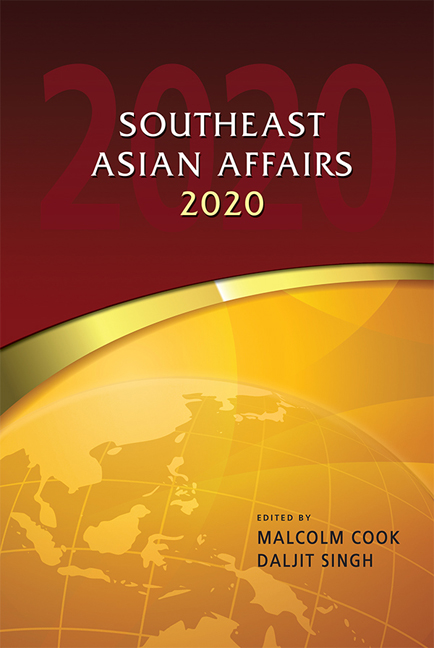Thailand in 2019: The Year of Living Unpredictably
Published online by Cambridge University Press: 24 November 2020
Summary
What happened in Thailand throughout 2019 was different from anything that had gone before in contemporary Thai politics. Prior to the March general election there were many questions. Was the election going to happen, and, if it was, what were the results going to be? The process leading up to the election was also intriguing. On the one hand, there were many new political parties. On the other hand, politicians faced many challenges and constraints caused by the promilitary constitution introduced in 2017.
The result of the election was even more startling. It saw the decline of the urban middle-class Democrats, the oldest party in Thailand, as well as the rural mass-based Pheu Thai, the latest incarnation of Thaksin-inspired parties, which had won every election this century. The election also witnessed the emergence of the “new kids in town”: Future Forward and Palang Pracharat. The latter was a pro-military party that recruited from the ranks of existing politicians with existing patronage networks. Palang Pracharat nominated General Prayut Chan-o-cha, the leader of the 2014 coup and head of the junta, as its choice of prime minister. Even though Palang Pracharat was only the second-largest party in parliament, Prayut was still voted by a joint sitting of the House of Representatives and the military-appointed Senate to be the prime minister. Palang Pracharat also managed to form a coalition government of nineteen political parties to hold a slim parliamentary majority of 254 out of 500 seats, confronting an opposition bloc of seven political parties with 246 parliamentary seats. Given the economic downturn, strained relations with Western democracies, and the rise of a popular opposition in the form of Future Forward, the government was expected to be vulnerable and short-lived. But, after more than half a year, the pro-junta government has successfully maintained its upper hand, taming its medium- and small-sized coalition partners and suppressing the opposition. There have so far been no robust challenges to the pro-military government.
Peculiar Pre-election Conditions
In the decade following the 1992 democratic transition, Thailand was considered one of the most democratic countries in Southeast Asia. The subsequent campaign for reform led to the 1997 constitution, one of the most democratic in Thai political history. After this came two overwhelming electoral victories of Thai Rak Thai (“Thai Love Thai”), a new party led by Thaksin Shinawatra that was popular among the rural poor.
- Type
- Chapter
- Information
- Southeast Asian Affairs 2020 , pp. 337 - 354Publisher: ISEAS–Yusof Ishak InstitutePrint publication year: 2020

